Gut health has become an extremely popular topic in recent years, and it makes sense because a diverse gut microbiome can protect against autoimmune conditions, arthritis, and even bad moods. And if we’re going to talk about gut health, we need to talk about probiotics – the good bacteria that help to promote gut health. You’ve likely seen yogurt commercials advertising the fact that their products contain probiotics, but if you’re not a yogurt lover and you don’t feel that you’re getting enough of this important gut bacteria through your diet, what are you to do? Thankfully, there are some highly-rated supplements to help improve your microbiome. We searched the web to find the consensus five best probiotic supplements most recommended by experts.
➡️ Gut Microbiome Explained
The gut microbiome is the collection of trillions of bacteria, viruses, and other microbes that live in your digestive system. These microbes play a crucial role in many aspects of your health, including digestion, immunity, and mood.
Think of probiotics as tiny gardeners tending to this inner world. They crowd out harmful critters, produce helpful acids, and strengthen your gut barrier, keeping nasty bacteria out. You can befriend these gut gardeners through two main sources: food and supplements. Fermented foods like yogurt, kefir, sauerkraut, and kimchi are treasure troves of naturally occurring probiotics.
Supplements offer concentrated versions, but choosing the right one requires some detective work. Look for specific strains backed by research, the right dosage, and high CFU counts (live bacteria numbers). And always consult your doctor before diving into these microscopic marvels.
Now that you know the importance of probiotics, you’re probably ready to start supplementing with them. Below is our list of the consensus best probiotic supplements across eight expert reviews. Of course, we want to hear from you. Which probiotic supplement keeps your gut health in check? Comment below to let us know!

The List: Best Probiotic Supplements, According to Experts
1. Garden of Life Probiotics
This trusted supplement brand has landed in many of our supplement articles; and a variety of their probiotic offerings made experts’ lists. They claim to offer only “clean, traceable, clinically studied ingredients in the most sustainable way possible.”
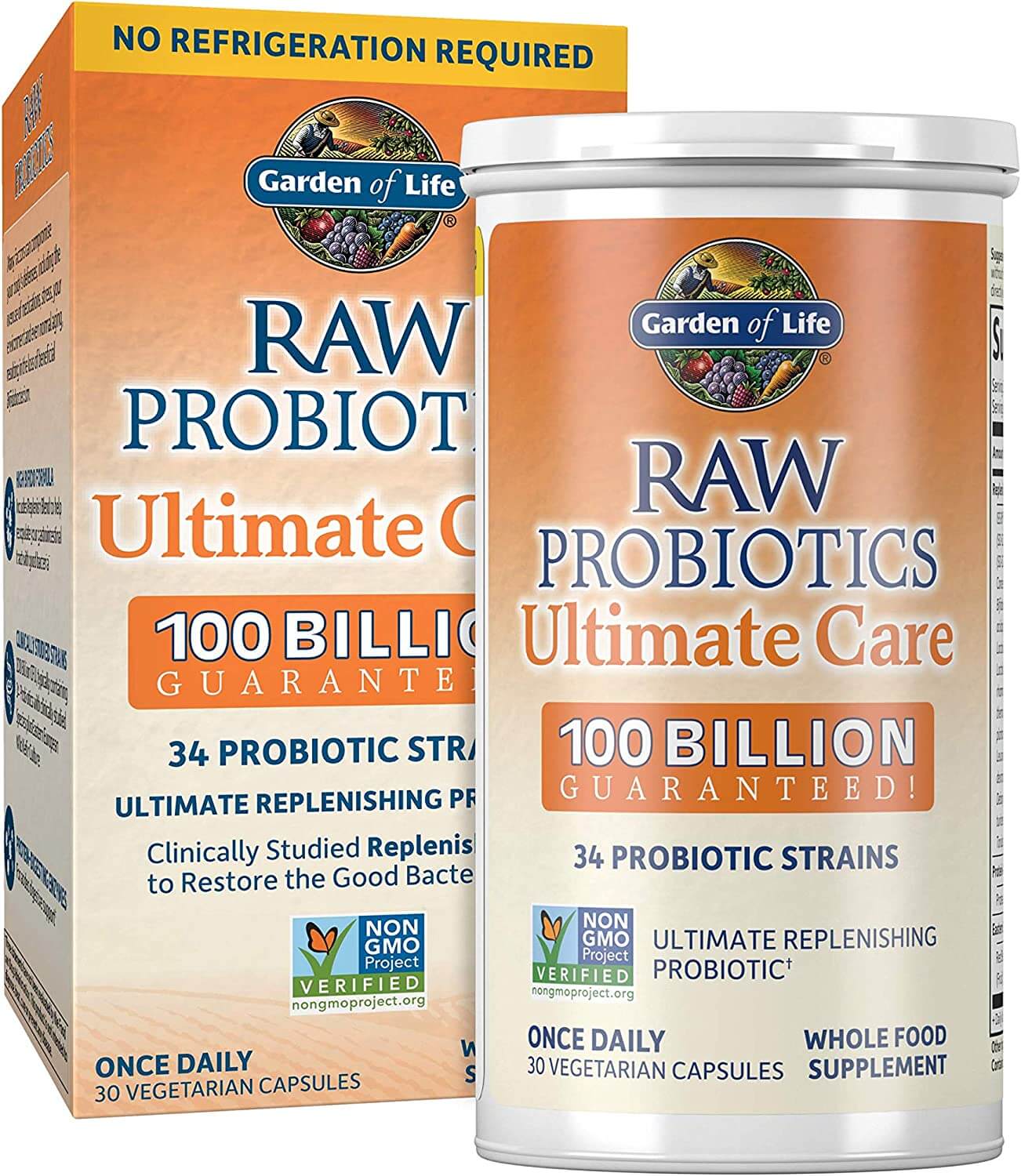
Medical News Today recommends for males, the Garden of Life Raw Probiotics Men. “Garden of Life claims this product may suit men’s health needs by supporting the gut, prostate, and heart. Alongside 31 bacteria strains, the product contains a wide range of vitamins, minerals, and a dairy-digesting enzyme blend. As a raw food, this product is not cooked or treated. This product is suitable for vegetarians and free from gluten, soy, binders, fillers, carriers, and GMOs. The recommended dose is three capsules daily, each taken at separate times with or without food.”
“Garden of Life offers a probiotic formulated for men’s digestive and immune systems,” writes CNET. “With an impressive 15 strains, the capsules are also non-GMO, gluten-free, dairy-free, soy-free and vegetarian. The Once Daily Men’s supplements are designed to aid in colon health and reduce bloating, cramping and gas. In addition to the probiotic cultures, each capsule contains 407 mg of a prebiotic fiber blend, including organic potato and organic acacia fiber. One bottle contains 30 capsules. Take these daily probiotics with or without a meal.” They do note, however, that these are not for children.
If you’re looking for mood support, MBG Health recommends Garden of Life Mood+. “Yes, your gut health can have an influence on your mood, too. This supplement specifically contains clinically studied L. helveticus R0052 and B. longum R0175, demonstrated to support emotional well-being. What’s more, it contains adaptogenic ashwagandha, which aids with stress management.” They note that it “supports digestive balance, promotes well-being, and has a unique blueberry blend,” but there are also cons, including the fact that these are “not suitable for vegans,” and that there is a lack of information about most of the strains contained in the product.
2. Culturelle Probiotics
This brand, according to their website, is the most trusted probiotic brand in America, uses the most clinically studied probiotic strain, and is the number one pediatrician recommended brand. They offer many women’s and family health products all centered around gut health.
For the best probiotics to take with antibiotics, Medical News Today recommends Culturelle Probiotics: Ultimate Balance for Antibiotics. “Culturelle claims that these probiotics may help reduce side effects when taking a course of antibiotics, specifically digestive issues such as diarrhea, gas, and bloating.” They note that “This probiotic contains 20 billion CFUs of Lactobacillus rhamnosus…The capsules are vegetarian and free from tree nuts, peanuts, dairy, and egg.” They also mention that the capsules do not need to be refrigerated.
CNET recommends Culturelle Pro Strength Daily Probiotics. “Culturelle probiotics are for anyone over 12 years old looking to boost their gut health. The capsules contain one of the most researched strains of bacteria — Lactobacillus rhamnosus — to aid in healthy digestion and bacteria balance…Each package contains 60 capsules — two months’ worth of probiotics. It is important to note that these probiotics are not delayed release, meaning that the capsules will be absorbed right away in the stomach and not in the small intestine.”
Listed as their best overall probiotic, Healthline chooses Culturelle Digestive Daily Probiotic Capsules. “One capsule of Culturelle Digestive Daily Probiotic has 10 billion CFUs of Lactobacillus rhamnosus GG, a probiotic strain that may benefit a number of health conditions, such as diarrhea and irritable bowel syndrome. This supplement also contains 200 milligrams (mg) of the prebiotic inulin, which fuels beneficial gut bacteria…Culturelle guarantees that the stated number of CFUs on the box is viable through the expiration date of the product, something the National Institutes of Health (NIH) recommends customers look out for.” Additionally, they mention that “While products are not routinely tested for purity and potency by a third-party lab, the company states that it takes multiple measures to ensure quality and safety.”
3. Align Probiotic
Align aims to improve “your overall gut health and daily wellness,” according to their website. And they want to do this not only through their products, but through education as well. They offer many “Probiotics 101” articles on their website to teach people about probiotics and gut health.
Prevention lists this as their best overall probiotic: “This ever-popular probiotic supplement is a favorite among gastroenterologists thanks to strains like Bifidobacterium 35624, which supports healthy digestion and can help with occasional gas and bloating. It’s a well-studied probiotic for gut health, Dr. Rajapaksa says, and Amazon reviewers are big fans. ‘I no longer bloat and my bathroom problems totally disappeared,’ one raves.” For pros, they list that it’s #1 doctor and gastroenterologist recommended, Gluten-free, Soy-free, and Vegetarian. They only con they listed was that some reviewers said the packaging was bulky.
Forbes mentions a doctor’s opinion: “Michael Bass, M.D., a diplomate of the American Board of Internal Medicine (with a sub-specialization in gastroenterology and hepatology) and medical director of Oshi Health, also recommends Align. ‘With Align, you know what you’re getting,’ he says. ‘The bifidobacterium species [used in the probiotic] has a great deal of data backing its use.’”
Healthline writes, “Align is a physician-trusted brand that contains Bifidobacterium longum 35624, formerly known as Bifidobacterium infantis 35624, a probiotic strain that has been researched for its role in digestive health, including IBS symptoms…This product’s label states that each capsule contains 5 billion live bacteria at the time of manufacturing and 50 million CFUs until the ‘best by’ date.” And “Because it doesn’t require refrigeration, it’s a good option if you travel often or prefer not to worry about storing your probiotic supplement in the fridge.”
4. NOW Probiotic
This company has been around for over 50 years and their supplements populate most grocery and drug store shelves. They’re a family-owned business and their products range from probiotics, to BCAAs, to dried fruit and everything in between.
“That’s right, your mouth has a microbiome, too,” writes MBG Health, and it’s why they recommend NOW OralBiotic Lozenges. “This probiotic supplement features Streptococcus salivarius K12, a strain shown to help the body’s natural defenses starting with the mouth.” As far as pros, they like that this supplement supports oral microbiome and that it offers a unique delivery format. For cons, they list the fact that it contains milk, that it’s not suitable for vegans, and that it contains a long list of ingredients. They do mention, however, that it’s gluten, soy, and nut-free. So, if you’re looking for a different way to get your probiotics or you simply struggle to take pills, this may be a good option for you.
Forbes recommends Now Probiotic-10. “The blend in this particular probiotic offers ‘a balanced spectrum of live organisms’ that naturally occur in the human GI tract, according to the company.” They note that this is an affordable option that is free of dairy, soy, and gluten, but they also share that the company “warns of melting or damage to the product if left outside during warmer months.”
Healthline writes, “NOW uses DNA fingerprinting technology to guarantee the identity, potency, and purity of the bacterial strains used in its probiotic products. This testing also helps identify potential bacterial contaminants in the products prior to manufacturing…Additionally, NOW’s facilities are certified by UL Solutions (previously Underwriters Laboratories), an independent certification safety company that ensures safe manufacturing and storage practices. This probiotic is processed in an allergen-free facility, so it’s suitable for those with allergies.”
5. Renew Life Ultimate Flora Probiotic
According to the website, this company started because the founder was looking for help in solving her own gut issues. That was 25 years ago, and this company is still going strong. Though they focus on gut health, they do also offer a variety of other supplements as well.
Byrdie writes, “A major obstacle when it comes to staying consistent with taking probiotics is that many of them need to be refrigerated. Refrigeration keeps bacteria viable and supports overall efficacy. Finding a probiotic that ensures potency not just at the time of manufacture, but at the time of purchase is difficult…Renew Life’s On The Go Probiotic takes away the stress of refrigeration. Renew Life’s Extra Care probiotics provide 50 billion live cultures from 12 different probiotic strains, designed to re-establish digestive balance. Ensuring quality and potency through expiration, Renew Life’s capsules are designed to be delayed-release, making sure the contents make it past the acidic environment of the stomach. As a bonus, these probiotics do not need to be refrigerated, a plus when shipments might be delayed, routines are disrupted by travel or emergency times without refrigeration.”
“As we age, the amount of Bifidobacterium species in our gut decreases, per a 2017 study—but this supplement is designed to fight back,” writes Prevention. “Formulated with 30 billion CFU of Bifidobacteria strains (plus a healthy dose of key Lactobacilli strains, too), it’s especially helpful for older adults. ‘My body is stronger, I am more focused on things I do during the day, and I am in a better mood,’ one reviewer reports.” They like that this product is clinically studied and that it’s gluten, dairy, and soy-free. They do note, however, that it does have a slightly lower amount of live cultures than some other options.
Verywell Fit writes, “Renew Life Ultimate Flora Probiotic contains 6 billion colony forming units (CFU) of Saccharomyces boulardii, which is proven to rebalance the gut microbiome after antibiotic-associated diarrhea. The capsule is coated to ensure that the microbes make their way safely to your intestines, and you only need to take one capsule a day to get in the appropriate dosage.”
Side Effects From Probiotics
A popular question is whether taking probiotic supplements could cause side effects. While generally considered safe for most people, probiotics can cause side effects, especially when you first start taking them. These side effects are usually mild and temporary, but it’s still important to be aware of them.
The most common side effects of probiotics include:
- Digestive upset: This can include gas, bloating, diarrhea, and constipation. These symptoms usually go away within a few days or weeks as your body adjusts to the probiotics.
- Skin problems: In rare cases, probiotics may cause skin rashes or itchiness. If you experience any skin problems after taking probiotics, stop taking them and see a doctor.
- Allergic reactions: Some people may be allergic to the ingredients in probiotic supplements, such as dairy or soy. If you experience any symptoms of an allergic reaction, such as hives, swelling, or difficulty breathing, stop taking the probiotics and see a doctor immediately.
Tips for minimizing the risk of side effects from probiotics:
- Start with a low dose and gradually increase the dosage as tolerated.
- Take probiotics with food.
- Choose a probiotic supplement that is from a reputable manufacturer.
- Talk to your doctor before taking probiotics, especially if you have any underlying health conditions.
It’s also important to note that probiotics are not a magic bullet for gut health. While they can be beneficial for some people, they may not be effective for everyone.
If you’re considering taking probiotics, it’s important to talk to your doctor to see if they’re right for you.
You may also be interested in:
Note: This article was not paid for nor sponsored. StudyFinds is not connected to nor partnered with any of the brands mentioned and receives no compensation for its recommendations. This post may contain affiliate links.
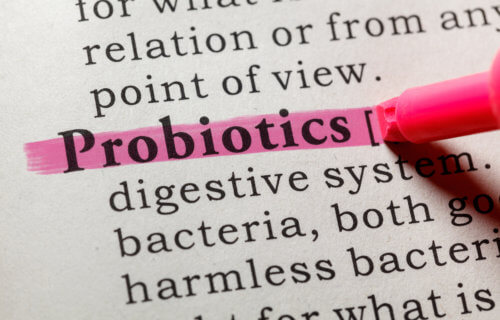
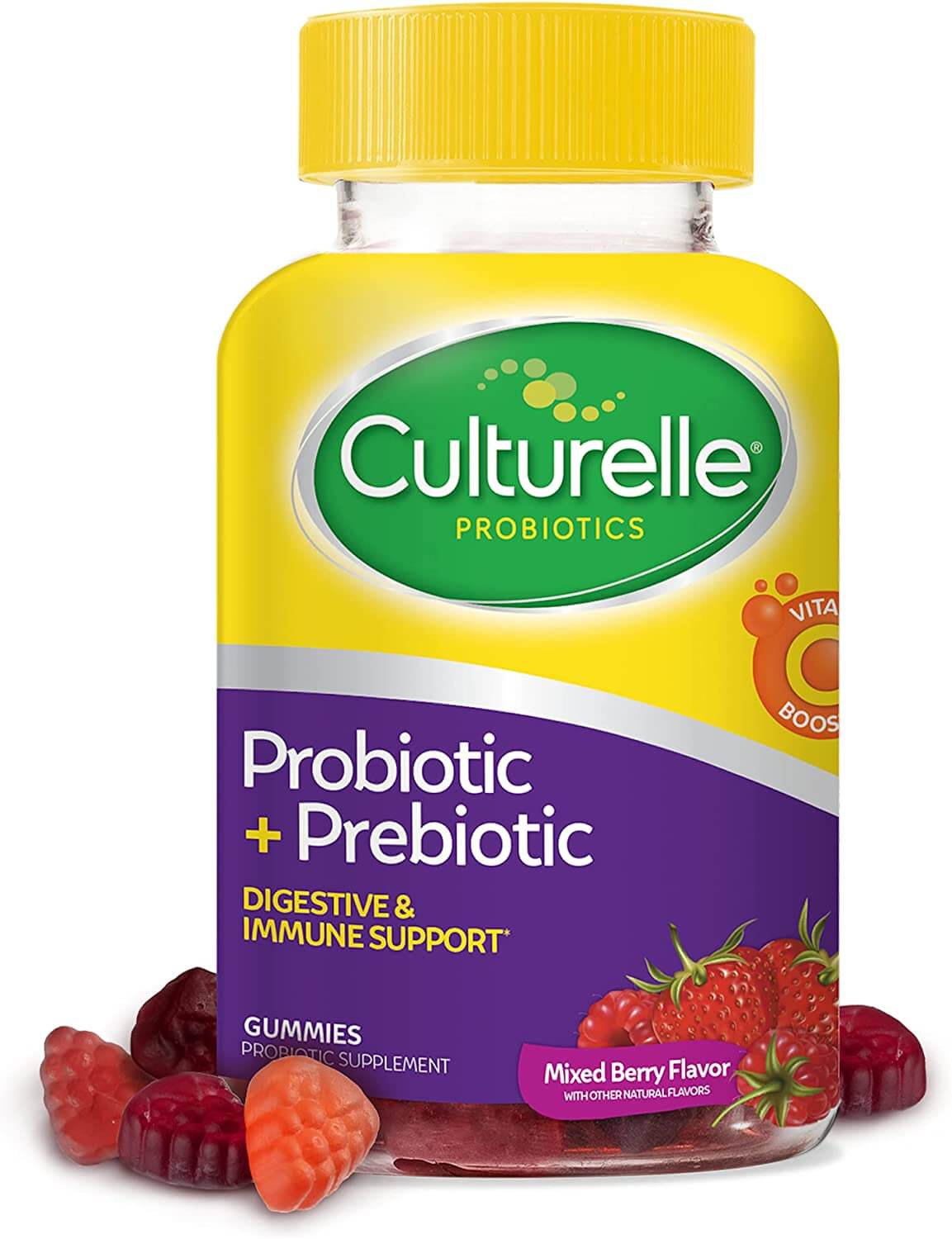
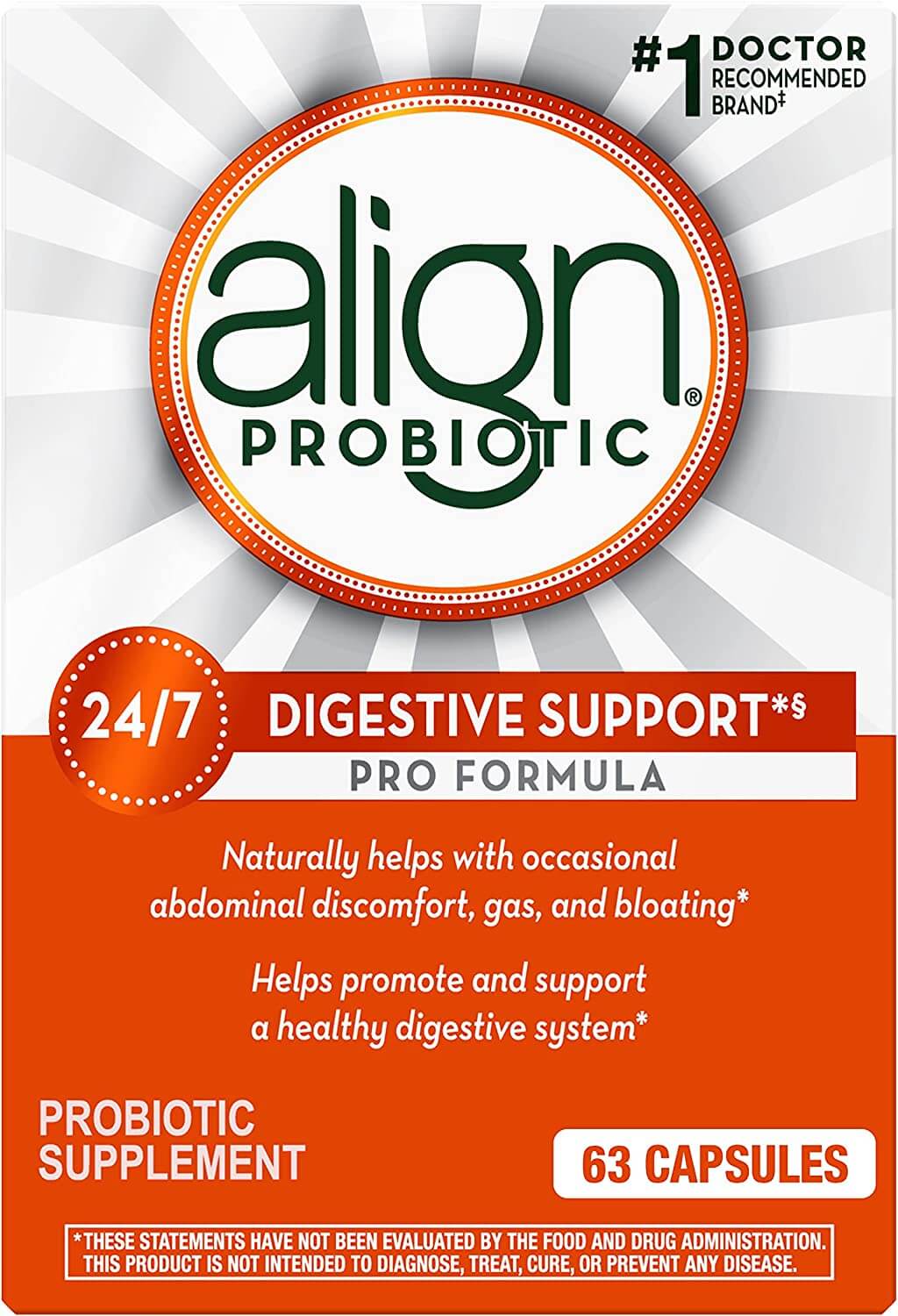
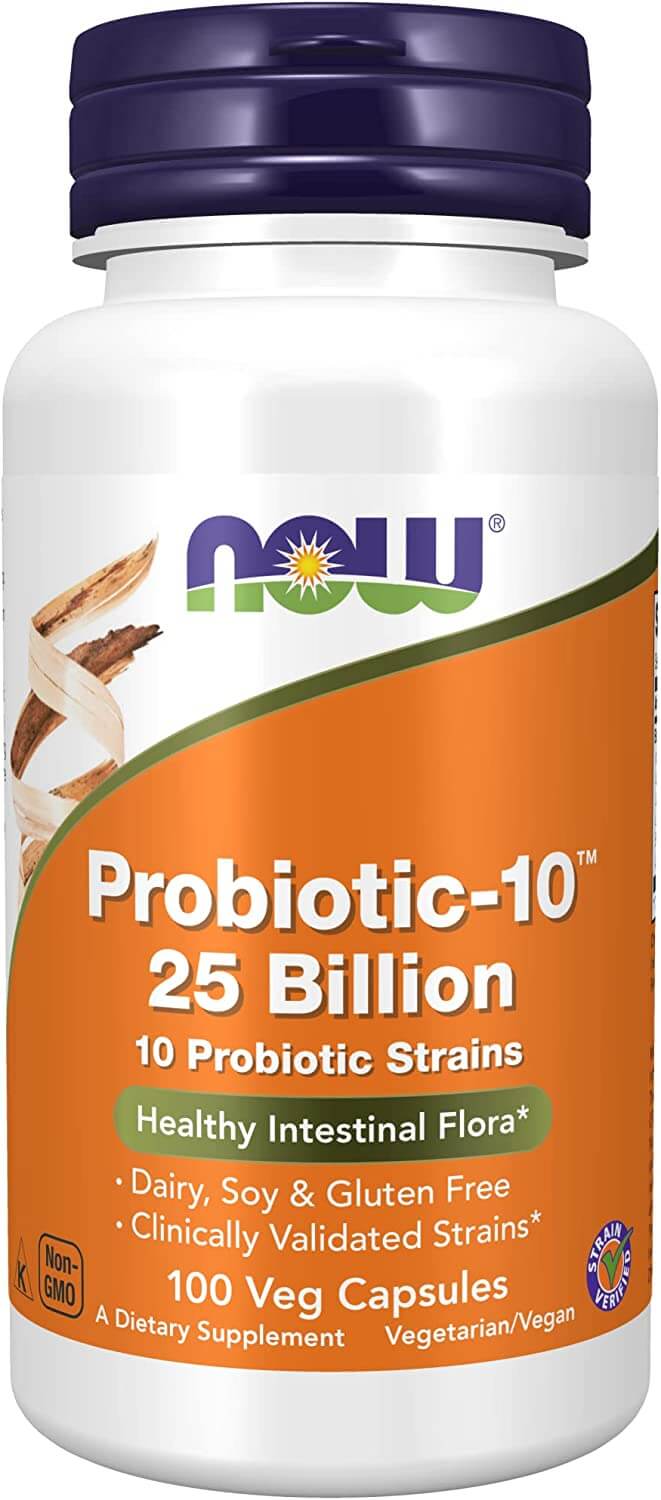
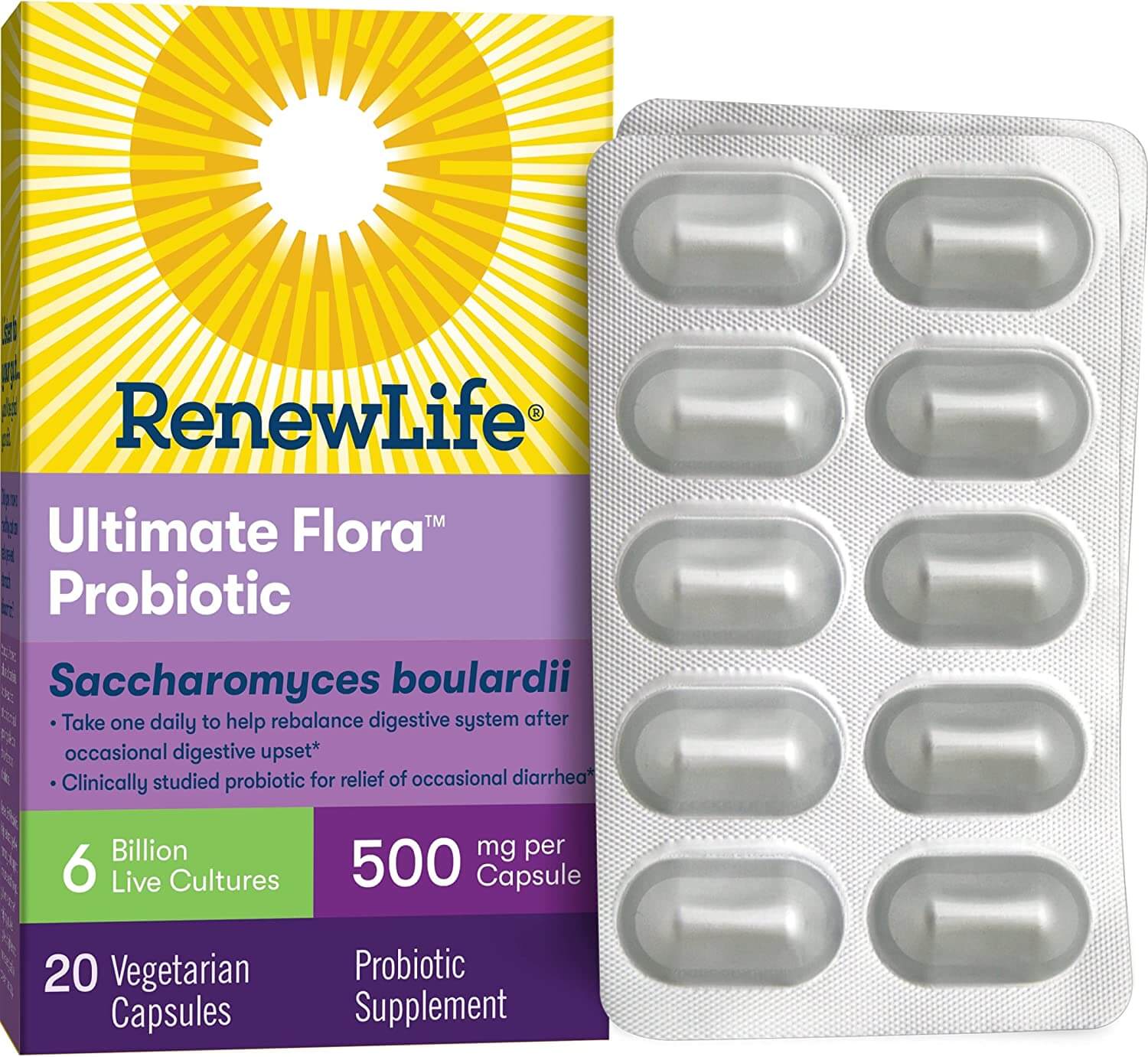
I’m surprised Kefir was not included in the list.
Kefir has over 20 strains of good bacteria, about 10 strains of healthy yeast, and acetic acid (which is converted to the short chain fatty acid acetate). You can buy kefir grains on the internet for about $20 for a 1-2 tablespoons. The grains look a little like cooked colliflower.
Kefir grains continually grow and never die. I’ve had my grains for over 20 years. At one time I had over a gallon of grains that grew from 1 tablespoon. In one year 1 tablespoon will grow to a cup or more of keflr grains.
But they grow exponentially over time, the more you have, the faster they grow. They grow slowly if kept in the refrigerator 24 hours a day, and faster if kept at 80°F -100°F. No yogurt type machine is needed.
Or you can buy premade 32oz of kefir in all major grocery stores for $3-$4. (Lifeway is a good brand).
You can mix 32oz of store bought kefir with a gallon of milk. Leave at room temperature and it will start thickening up in 24-48 hours. Put it in the refrigerator after it’s starts to get thick and it will continue to grow more good bacteria until all the lactose is eaten up
But that process can’t be repeated endlessly with store bought kefir like it can with kefir grains. You will eventually need to buy another 32oz bottle.
.,………
BACTERIA COMMON TO KEFIR
Lactobacillus acidophilus
Lactobacillus brevis
Lactobacillus casei
Lactobacillus delbrueckii subsp. bulgaricus
Lactobacillus delbrueckii subsp. delbrueckii
Lactobacillus delbrueckii subsp. lactis
Lactobacillus helveticus
Lactobacillus kefiranofaciens subsp. kefiranofaciens
Lactobacillus kefiri
Lactobacillus paracasei subsp. paracasei
Lactobacillus plantarum
Lactobacillus rhamnosus
Lactobacillus sake
Lactococcus lactis subsp. cremoris
Lactococcus lactis subsp. lactis
Lactococcus lactis
Leuconostoc mesenteroides subsp. cremoris
Leuconostoc mesenteroides subsp. dextranicum
Leuconostoc mesenteroides subsp. mesenteroides
Pseudomonas
Pseudomonas fluorescens
Pseudomonas putida
Streptococcus thermophilus
YEAST STRAINS COMMON TO KEFIR
Candida humilis
Kazachstania unispora
Kazachstania exigua
Kluyveromyces siamensis
Kluyveromyces lactis
Kluyveromyces marxianus
Saccharomyces cerevisiae
Saccharomyces martiniae
Saccharomyces unisporus
Kazachstania unispora
Kazachstania exigua
Kluyveromyces siamensis
Kluyveromyces lactis
Kluyveromyces marxianus
Saccharomyces cerevisiae
Saccharomyces martiniae
Saccharomyces unisporus
None of these have anti fungal and yogurt you have to eat a ton to have any effect